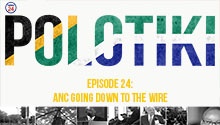Cape Town – Fifty years after Christiaan Barnard completed the world’s first successful human heart transplant, heart transplantation continues to capture the human imagination.
This is according to Professor Peter Zilla, a world-renowned heart specialist and head of the Christiaan Barnard Department for Cardiothoracic Surgery at Groote Schuur hospital in Cape Town.
Speaking to News24 inside the theatre where Barnard gave Louis Washkansky a beating heart on December 3, 1967, a proud Zilla explained the pioneering work that Barnard and his team did.
"Transplantation, particularly the transplantation of the heart, inspires the imagination of people far beyond the actual operation, but each era was differently inspired," Zilla said.
"The original era in '67 was inspired towards very, very vivid and strong ethic debates: 'Can we do that?; how can anyone take a heart which is apparently still alive, otherwise we couldn’t put it in?'
"In today’s world, it means something very different. It still inspires the imagination of people but in a different way, it epitomises more or less the cutting-edge nature of heart surgery," he said.
'The big challenge'
Zilla, who is set to lead a conference in honour of the 50-year-commemoration of the first heart transplant at Groote Schuur hospital at the weekend, said surgeons today used "practically the same" procedures for heart transplantation that Barnard used.
"In some European centres, a resident in training starts his career with transplantation before he moves on to the next one (operation)," Zilla explained.
"The big challenge in transplantation is, of course, the post-operative care and there a lot has changed."
"We have, today, modern immune suppression which gives 10-year survival rates of 70 or more percent, which is phenomenal."
At the conference, Zilla will be pushing for a 'Cape Town Declaration' to be signed which will commit surgeons, academic and political heads to help the 33 million people worldwide suffering from rheumatic heart disease, in honour of Barnard.
Also read: Winning invention is close to his heart
Rheumatic heart disease, which "mostly burdens the poor", is the damage caused to an individual's heart valves due to untreated infection of the throat with streptococcal bacteria.
Zilla said the aim of the Cape Town Declaration is to support the establishment of a global federation to coordinate efforts towards expanding cardiac surgical capacity, addressing rheumatic heart disease in low-to-middle income countries.
"I predict it will mark a turning point in the delivery of lifesaving medical procedures to millions of people in the developing world," he said.
"Poverty destroys the heart valves and without surgery, the patients die. This is also the reason why we who uphold the legacy of Christiaan Barnard have clearly shifted our focus to helping those millions of patients who need valve surgery for rheumatic heart disease rather than a minority treatment."
Watch the interview at the heart museum here:
































